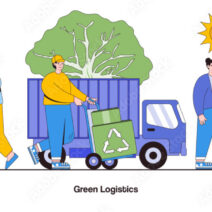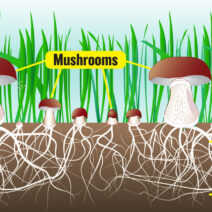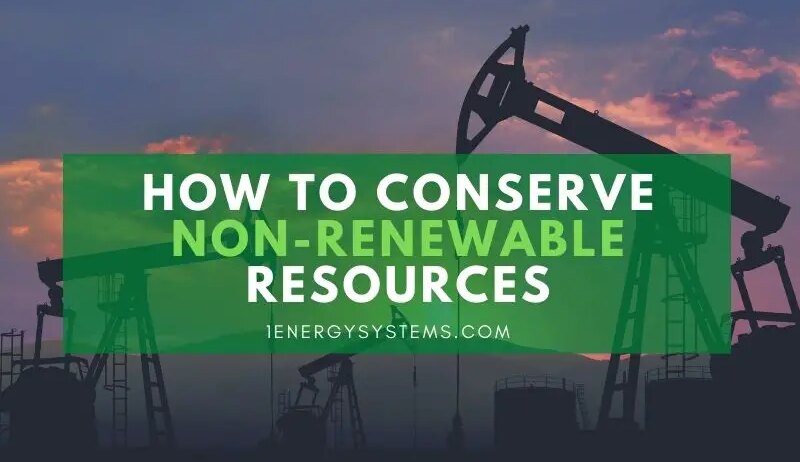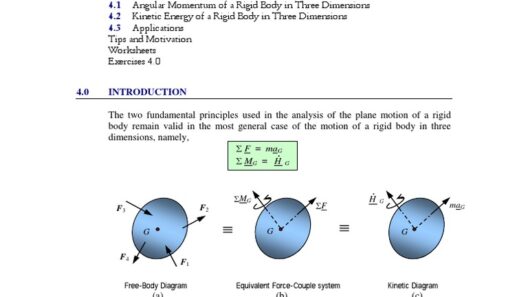As we navigate through the complexities of modern life, one pressing question emerges: how can we conserve non-renewable energy resources? This inquiry invites a playful challenge: What if the very survival of future generations hinges on our choices today? The stakes have never been higher. Non-renewable energy sources, such as fossil fuels and nuclear energy, are finite. They are being extracted and consumed at an alarming rate, and as we delve into this crucial topic, we must consider practical strategies for conservation that can be implemented immediately.
First and foremost, it is essential to recognize the role of education in the conservation of non-renewable resources. Awareness serves as the foundation for action. Schools, communities, and organizations should prioritize enlightening individuals about the ramifications of our energy consumption. Workshops and seminars that discuss energy conservation methods can instill a sense of responsibility and urgency. For example, understanding the carbon footprint associated with various energy sources can motivate individuals to rethink their daily habits. Knowledge allows for informed decision-making and highlights our interconnectivity with the planet.
Moreover, lifestyle changes play a pivotal role in energy conservation. Simple actions such as minimizing vehicle usage, adopting public transportation, or carpooling can lead to significant energy savings. For instance, consider how much energy is consumed during a single car ride. Each vehicle on the road contributes to the depletion of fossil fuels and exacerbates air pollution. A communal approach to transportation not only conserves energy but also fosters a sense of community among participants. Can you imagine how vibrant our cities would be if more people opted for bicycles or public transport instead of driving alone?
Additionally, energy efficiency in our homes is paramount. The implementation of energy-efficient appliances can dramatically reduce energy usage. When equipping homes, consider Energy Star-rated products that not only decrease energy consumption but also diminish monthly expenses. Transforming spaces with insulation, energy-saving windows, and programmable thermostats can harness the power of conservation. By actively engaging in home energy audits, individuals can identify areas for improvement and make targeted efforts toward efficiency.
Furthermore, the role of renewable energy sources cannot be overstated. While it is crucial to conserve non-renewable resources, investing in renewable resources also represents a gratifying challenge. Solar panels and wind turbines are increasingly accessible options for homeowners and businesses alike. Each installation contributes to a broader shift away from dependence on fossil fuels. For communities, collective investment in renewable energy sources signals a commitment to sustainability and energy independence. How might the energy landscape shift if a majority of households transitioned to renewable energy? The benefits would not only be environmental but also economic.
In conjunction with adopting renewable energy solutions, participation in energy conservation programs is vital. Many governments and organizations offer incentives for businesses and homeowners who demonstrate energy conservation measures. Tax rebates for energy-efficient home renovations and energy audits foster a culture of sustainability. Taking full advantage of these programs can lead to substantial financial relief while also promoting responsible energy consumption. Can everyday citizens, armed with information about local programs, create a ripple effect in their communities? Absolutely! With unified efforts, societal transformation becomes attainable.
Policy advocacy also plays a critical role in the larger scheme of energy conservation. Citizens must engage with policymakers to promote legislation that prioritizes sustainability and conservation initiatives. Whether it be lobbying for stricter emissions regulations or supporting investments in renewable energy projects, collective advocacy can lead to meaningful change. Individual voices can form a chorus that demands action from those in power. How empowering is it that civic engagement can directly impact our energy future?
Moreover, it’s imperative to focus on the intricacies of supply chains. By supporting local businesses that prioritize sustainable practices, consumers can drive demand for ethically sourced products. The transportation of goods contributes significantly to fossil fuel consumption; therefore, by choosing locally produced items, individuals can minimize their carbon footprint. Every purchase has the potential to support a movement towards sustainability. If everyone made conscious decisions about their consumption, how revolutionary could our economy become in favor of the environment?
In addition to these strategies, we must also confront the significant challenge presented by excessive waste. The production of non-renewable energy often generates substantial waste, both during extraction and after usage. Responsible disposal and recycling of electronics, batteries, and other hazardous materials associated with energy consumption need urgent attention. Establishing proper disposal methods ensures that harmful substances do not seep into our ecosystems, where they can wreak havoc on flora and fauna. Are we prepared to confront the reality that convenience often results in harmful consequences?
In conclusion, the conservation of non-renewable energy resources is more pressing than ever. By embracing education, transforming daily habits, investing in renewable resources, and advocating for policy changes, we can forge a path toward a sustainable and prosperous future. The challenge is significant, but the solutions are within our grasp. Do we have the courage to act now, or will we regret our inaction later? The choice lies in our hands, and the future of our planet depends on it.








